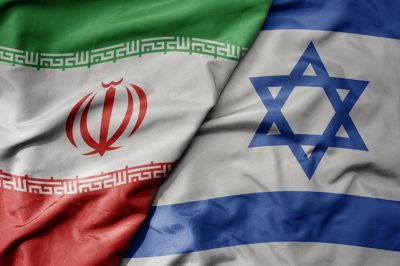The Iran-Israel Conflict has pushed the situation towards a risk that has the potential to draw in many other countries, including Pakistan. From spiking oil prices to fracturing existing international alliances, this conflict has the potential to trigger a cascade of effects.
The rivalry creates a lose-lose situation for many countries and threatens to draw powers like Russia and the USA into confrontation. Israel’s conflict with Iran without America’s support can pose a challenge to Tel Aviv because of its busy ethnic-cleansing schedules in Palestine.
From squatter settlement into the Palestinian territory to capturing the rest of it bite after bite, Israel has always shown rogue behaviour towards the Middle Eastern countries. Its mischievous behavior has converted the region many times into a combat coliseum.
On the other hand, Iran is well-known for its defiance on the world stage, willing to challenge even the most powerful nations. Having caused tremendous destruction in the Gaza Strip, it was the most unsuitable military decision on the part of Israel to engage in an open rivalry with a daredevil like Iran, the country known for its assertive stance in the international arena.
On April 13, 2024, Iran unleashed its most extensive display of conventional military might ever seen, involving over 300 drones and missiles. The attack, according to Iran, was reportedly launched as retaliation for a previous Israeli strike that targeted Iran’s consulate building in Damascus on this year’s April Fools’ Day.
This chain of strikes between both countries can potentially escalate into a conflict between the West and the rest. The Israeli air defense and the supporting countries, including the United States, the United Kingdom, France, and Jordan, seized Iran’s air drones and missiles.
Meanwhile, as a prominent Muslim country (comprising 97 percent of Muslims), Jordan’s support for Israel and intercepting Iranian missiles from reaching Tel Aviv have complex political implications.
Extending assistance to the West might not be the most strategically sound decision for Jordan now. Such events raise questions about Huntington’s idea. Cultural differences are the primary driver of conflict in the post-Cold War world.
Talking about the allies, it is undeniable that being backed by the United States has paid Israel off multiple times. From providing it with moral support to equipping it militarily, the U.S. has always been there for Israel. However, after this collision between the two countries, America has declared that it will steer clear if the matter escalates.
“We are not looking for a wider war with Iran,” says White House National Security Council spokesman John Kirby. He also added that the United States does not want to see this escalate.
Washington underscores its non-involvement in the situation, highlighting the potential for an unpredictable reaction from Israel. The U.S. clarified that they “won’t be a part of” any Israeli response. The U.S., seemingly weary of tensions with Iran, is cautious of the potential for escalation if the conflict between Iran and Israel worsens.
Also Read: Pakistan’s Deputy Prime Minister advocates solidarity at OIC Summit
As various challenges loom on the horizon, a question emerges: Can Israel continue its disruptive behavior without the crucial backing of the United States and other allies? Powerful protests erupting in pro-Israel countries are forcing the leaders to reconsider their stance.
Iran, in contrast, has rallied support from many Muslim states worldwide, who perceive it as a champion of their cause internationally. This could signify a shifting political landscape with potential consequences for Israel’s plans.
As far as Pakistan is concerned, it once again finds itself in a dilemma. The well-being of its fragile economy depends heavily on attracting foreign investment and loans. Much of which comes from Western nations.
However, religious solid sentiment within the country often leads to a critical stance towards pro-Israel America and other allies, which can strain relations with those nations that Pakistan needs for economic support.
In Pakistan, not only is there strong public support for Iran. But there is also a significant portion of the public—that advocate for direct military involvement in support of their Muslim neighbor.
Islamabad, however, is concerned about the intensifying tensions between these countries. It has called for maximum restraint and the pursuit of diplomatic solutions to de-escalate the situation.
Think tanks warn that a direct confrontation between these two nations could have negative consequences for Pakistan, creating various security challenges for the country. Pakistan’s geostrategic location, religious standing, and dependence on foreign economies often place it in a bind when facing international matters.
The U.S. has already raised concerns about potential sanctions on Pakistan following its commitment to deepen security and economic ties with Iran after President Raisi’s visit.
To navigate this situation successfully, Pakistan needs to benefit from making data-driven decisions supported by cost-benefit analysis, an approach that isn’t as common as it could be in the country.
To sum things up, the Iran-Israel clash unfolds new chapters in the political arena. The political view of the Middle East is already very complex, and a new clash could have far-reaching consequences.
This is more of a religious tussle that can not only prove devastating for both countries. But it could also trigger a shift in global political alliances, pulling many other countries into the fray.
Powers like the United States need to make objective decisions and stop to aid Israel’s complex goals. As Pakistan suggests, peaceful solutions and skilled efforts can still prevent the Middle East from breaking into war.
** The opinions expressed in this article are solely those of the author and do not reflect the views or position of World Affairs Insider. The organization neither endorses nor takes responsibility for the content of this article and its accuracy.

International Relations student with solid academic basis in Diplomatic Relations, International Law and Intercultural Communication. Her writings focus on international relations, feminism and current trends.







